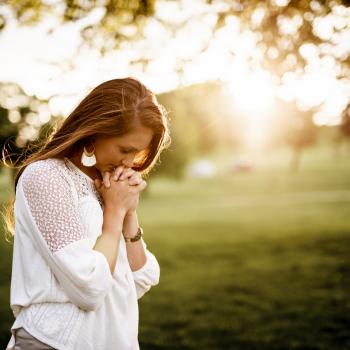By Fr. Carl Chudy –
More than two years ago, we began a Meetup called Common Ground: Conversations Between Atheists, Humanists, and Religious Believers. Our reach out was in the northern New Jersey area, metro New York City area and we hoped to see if there were religious and non-religious people who wanted to get together to search out common ground together. We were careful to vet folks, eager for those interested in respectful, honest dialogue and who valued listening and learning, no need for those who wanted a soap box, religious or not.
Our first meeting was three of us who met on a rainy storm-driven night in a Montclair, New Jersey diner. I had the meatloaf. Since then our Meetup group as grown to almost 60 members, and there is a consistent small group that gathers each and every month. We have become friends, and this sustained conversation with many of the same people in two years has done much to shape and correct my views of non-religious people. It has even challenged me to question many things about my own religious identity.
The Desire to Connect in a Disparate World
There is a deep desire among diverse people to connect with each other in meaningful ways that transcend surface stereotypes. I am amazed how some people with such different worldviews actively seek each other out, particularly online. In a hyper-differentiated world where diversity and pluralism seems threatening to so many, here we have a cadre of people who wish to honor that plurality by exploring its meaning through dialogue.
Groups like this on the surface, who appear so different in how they view themselves and the world around them may seem to be unlikely dialogue partners, but the deep ardent need to bridge the divisions among us often wins out. It is for me an expression of the extraordinary power of human love.
Pluralism Abounds, Stereotypes Fail
I should mention that these religious and non-religious people are of course complex. Many atheists are indifferent to religion or are anti-religious, while others like Chris Stedman and Greg Epstein are doing excellent work to bridge this cultural divide.
There are also lots of atheists within religious traditions such as Buddhism and Unitarian Universalism. Furthermore, there are several terms that atheists and religious people use to describe themselves, and (like one of our Meetup members) avoid any label like the plague. They don’t want to be defined by anyone.
In other words, there is no simple “atheist” or “believer.” Some religious people are theists, while others reject an interventionist god. There are some who may belong to a religious tradition but no longer believe in the tenets of faith in that tradition. Many non-believers identify as agnostics, atheists, aweists, seekers and skeptics, or a combination of these. Then there are those with a “hyphenated identity” such as secular Jews, Hindus, Christians, and even atheist christians.
It is indeed a complex landscape and one that defies any kind of stereotyping. (Some of these ideas come from Be Scofield in his awesome blog post on Huffington Post: Two Pillars of Religious-Atheist Dialogue.)
Changing Our Minds About Each Other
Within this complexity is a fundamental issue: we know so little about each other in truth. Yet, in our walled-off worlds of the religious and non-religious, we think we know all we need to know about each other. Many religious believers fall under the false notion they understand the true nature of atheists and have assumed that a battle between faith and secular culture is in order. This false assumption is at the heart of our fragmentation.
In this “battle” most of the talk is among themselves, a virtual “preaching to the choir.” At the same time, the new atheists and ardent religious fundamentalists fuel circles of hostility and ignorance. Unfortunately, short slogans like “religion is evil,” and “atheists are going to hell” still frame the discussion. It is time for a new frame. (Be Scofield again)
In my personal experience as a Catholic priest who has worked in three continents and delights in immersing in this secular/religious dialogue, I have come to realize more and more that my values are not so different from the values of my atheist friends in important ways. We have different reasons for holding on to them, but holding on to them is the most significant thing here.
In an article titled “‘Violent’ Muslims? ‘Amoral’ atheists? It’s time to stop shouting and start talking to each other,” Chris Stedman and Reza Aslan wrote, “Research shows that simply knowing someone from another religious or ethical group often leads to more positive views of that group. That’s why personal relationships are indispensable when it comes to changing how we talk about religion and atheism.”
We need to take each other seriously – and if I take something seriously, I engage it critically. The work of this dialogue and its promised fruits implies some type of critical engagement that is persistent over time with a hope toward solidarity. It is an important sign of how much we esteem each other and to what lengths we are willing to go to unearth solidarity, despite our differences.
Image via Shutterstock
 FR. CARL CHUDY is a Catholic priest and Provincial Superior of the Xaverian Missionaries in Wayne, New Jersey. He holds a Masters in Divinity from Catholic Theological Union with a cross-cultural specialization. Carl is currently involved in interfaith initiatives, including extensive work with the American Humanist Association.
FR. CARL CHUDY is a Catholic priest and Provincial Superior of the Xaverian Missionaries in Wayne, New Jersey. He holds a Masters in Divinity from Catholic Theological Union with a cross-cultural specialization. Carl is currently involved in interfaith initiatives, including extensive work with the American Humanist Association.
















